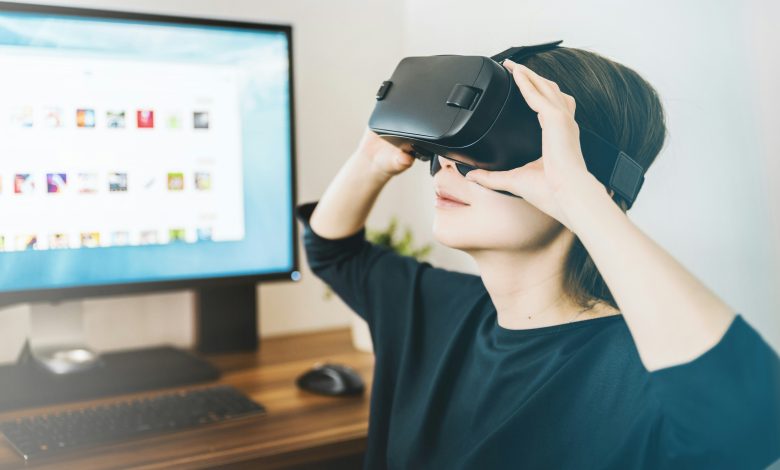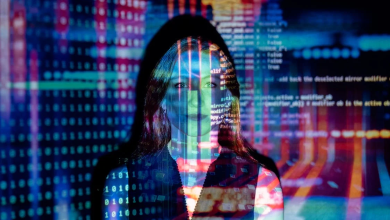The Metaverse: What Is It?

In the digital age, the concept of the Metaverse has emerged as a fascinating and increasingly relevant topic. Imagine a universe where physical and virtual realities converge, creating a seamless blend of digital experiences and real-world interactions. This is the essence of the Metaverse a concept that has captured the imagination of technologists, entrepreneurs, and enthusiasts alike.
Defining the Metaverse
The Metaverse can be best described as a collective virtual shared space, created by the convergence of virtually enhanced physical reality and persistent virtual spaces. Regardless of their actual location, users can engage in real-time interaction with digital things and each other in this virtual world. Unlike traditional virtual environments, the Metaverse is not limited to a single platform or application but encompasses a myriad of interconnected virtual worlds and experiences.
Origin and Evolution
The term “Metaverse” was coined by science fiction author Neal Stephenson in his 1992 novel “Snow Crash.” Since then, the concept has evolved from a fictional idea to a tangible reality, thanks to advancements in technology such as virtual reality (VR), augmented reality (AR), and blockchain.
Key Components of the Metaverse
Virtual Reality (VR)
VR technology enables users to immerse themselves in fully digital environments, experiencing sights and sounds as if they were physically present. With VR headsets and peripherals, users can explore virtual worlds, interact with objects, and engage in various activities.
Augmented Reality (AR)
AR overlays digital content onto the real world, enhancing the user’s perception of their surroundings. Popularized by applications like Pokémon GO, AR technology has the potential to seamlessly integrate digital elements into our daily lives, blurring the lines between the physical and virtual realms.
Blockchain Technology
Blockchain serves as the underlying infrastructure of the Metaverse, providing decentralized and secure platforms for transactions, ownership, and identity verification. Through blockchain-based systems, users can securely trade virtual assets, authenticate digital identities, and establish trust in virtual economies.
Social Interaction and Virtual Communities
Central to the Metaverse is the concept of social interaction, where users can communicate, collaborate, and form relationships in virtual spaces. Virtual communities within the Metaverse serve as hubs for socializing, gaming, and creative expression, fostering a sense of belonging and camaraderie among participants.
Applications and Industries in the Metaverse
Gaming
Gaming represents one of the primary domains of the Metaverse, offering immersive and interactive experiences for players worldwide. From massive multiplayer online games (MMOs) to virtual reality simulations, gaming in the Metaverse spans a wide range of genres and platforms, catering to diverse audiences.
Education and Training
The Metaverse holds immense potential for revolutionizing education and training, providing interactive and engaging learning experiences for students of all ages. Virtual classrooms, simulations, and training modules enable learners to explore complex concepts, acquire new skills, and collaborate with peers in virtual environments.
Healthcare
In the healthcare sector, the Metaverse offers innovative solutions for patient care, medical training, and therapeutic interventions. Virtual reality simulations allow healthcare professionals to practice surgical procedures, while telemedicine platforms enable remote consultations and diagnostics, improving access to healthcare services worldwide.
Business and Commerce
From virtual storefronts to digital marketplaces, the Metaverse presents new opportunities for businesses to connect with customers and conduct commerce in virtual spaces. Virtual reality shopping experiences, blockchain-based transactions, and immersive advertising campaigns redefine the way products and services are marketed and consumed in the digital age.
Challenges and Concerns
Despite its promise, the Metaverse also poses several challenges and concerns that must be addressed:
Privacy and Security
As virtual environments become increasingly integrated into our daily lives, safeguarding user privacy and data security becomes paramount. Concerns regarding surveillance, data breaches, and identity theft necessitate robust measures to protect user information and ensure trust in virtual platforms.
Digital Divide
Access to the Metaverse is not equally distributed, with disparities in technology adoption and internet connectivity posing barriers to participation. Bridging the digital divide requires initiatives to expand access to affordable devices, high-speed internet, and digital literacy programs, ensuring inclusivity and equal opportunity for all.
Ethical Implications
The Metaverse raises ethical questions surrounding identity, representation, and virtual behavior. Issues such as digital identity theft, cyberbullying, and virtual harassment underscore the need for ethical guidelines and responsible conduct in virtual spaces, promoting a safe and respectful environment for all users.
Future Outlook and Potential Impact
Looking ahead, the Metaverse is poised to exert a profound influence on society, economy, and technology:
Economic Implications
The Metaverse represents a burgeoning market opportunity, with projections estimating its economic value in the trillions of dollars. From virtual real estate to digital goods and services, the Metaverse economy offers diverse revenue streams for businesses and entrepreneurs, driving innovation and economic growth.
Societal Changes
The Metaverse has the potential to reshape social norms, cultural practices, and human interactions in profound ways. Virtual communities, digital identities, and online relationships redefine notions of space, identity, and belonging, challenging traditional concepts of reality and social interaction.
Technological Advancements
Advancements in VR, AR, and blockchain technologies continue to fuel the development of the Metaverse, pushing the boundaries of what is possible in digital environments. From lifelike simulations to decentralized ecosystems, ongoing innovations promise to enhance the richness, diversity, and interactivity of the Metaverse experience.
Conclusion
In conclusion, the Metaverse represents a transformative paradigm shift in how we perceive and interact with digital technology. As virtual and physical realities converge, the possibilities for creativity, collaboration, and exploration are limitless. However, realizing the full potential of the Metaverse requires addressing challenges such as privacy, inclusivity, and ethical considerations. By fostering innovation, collaboration, and responsible stewardship, we can harness the power of the Metaverse to create a more immersive, equitable, and interconnected world.

